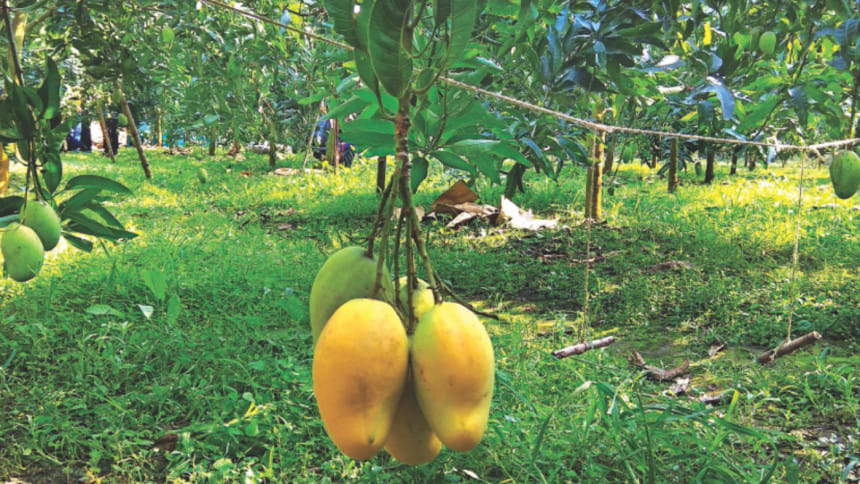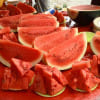Mango, even in winter

The mangoes of Chapainawabganj, a delicacy of Bangladeshi summer, are now available amid the chills of winter.
Ripe mangoes hanging from trees are bound to catch one's eye at the orchard of Sirajul Islam in Nawdapara village of Gomostapur upazila.
The unique variety is soft, juicy and the trees bloom thrice a year, according to the 55-year-old farmer.
During a recent visit, this correspondent found green mangoes and buds on the trees alongside ripe ones.
Sirajul planted 220 saplings of Amropali variety on one bigha land five years ago. A year later, he collected some scions of another mango variety and pruned branches by top working.
The trees yielded fruits thrice in 2015 prompting Sirajul to repeat the technique.
During summers, he removes the buds. He harvests only in winters.
“This year I got a bumper yield of mangoes. The fruits are in good shape and contain more fibre. The larger ones will be around 300 grams in weight,” Sirajul told this paper.
In the last four years, Sirajul invested Tk 150,000 and harvested around 20 maunds of mangoes.
This winter, he harvested on December 10 and sold them at Tk 11,000 per maund to a wholesaler in Dhaka's Mirpur. The current rate is Tk 13,500 per maund. Sirajul is eyeing Tk 500,000 this season.
He has also produced 10,500 saplings and sold 500 of them for Tk 350 each.
The winter variety, locally known as “Baromashi”, has not been officially named yet, Sirajul said, adding that he had got in touch with the local horticulture centre.
Johurul Islam, Chapainawabganj Horticulture Centre's germplasm officer, said, “Locally grown guavas dominate the winter fruit market. This mango may take over if promoted across the country.”
“The mango ripens in December. When other varieties are unavailable, this one will be there and farmers will get a higher price than usual,” said Saifur Rahman, deputy director at the centre.

 For all latest news, follow The Daily Star's Google News channel.
For all latest news, follow The Daily Star's Google News channel. 






Comments